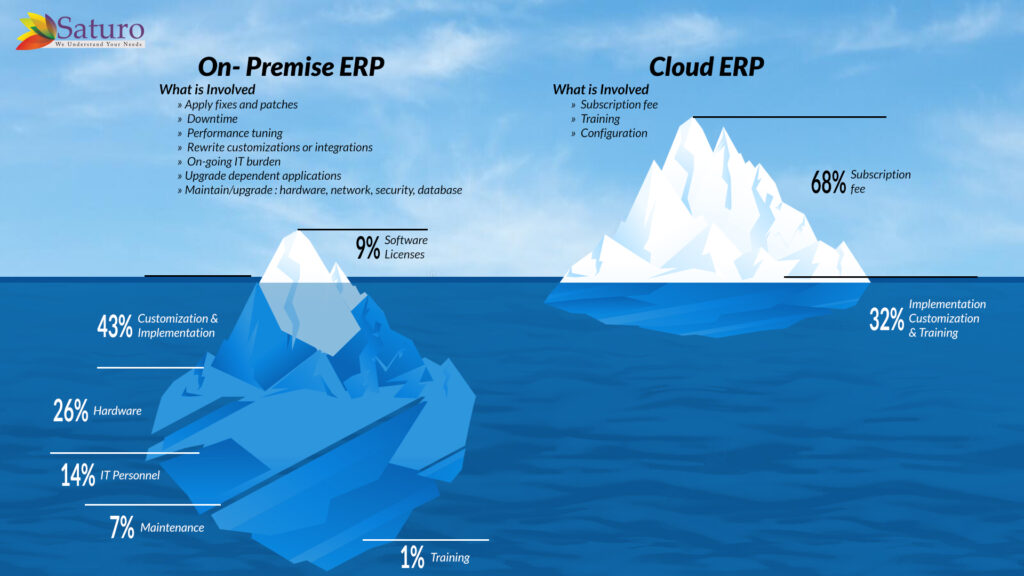On-Premise ERP and cloud ERP are two different ways to implement an enterprise resource planning system. Both are suitable for growing and small businesses alike, but on-premise ERP has its own advantages. In contrast, cloud ERP has a higher degree of customization and flexibility. While cloud ERP does not require IT support, vendors can help determine what changes to make. Since on-premise ERP relies on existing hardware, it is less expensive to maintain than cloud ERP.
On-premise ERP adds complexity. Companies may want to keep their existing investment, but not risk causing stress to their employee population. However, every organization eventually has to make the decision about whether to use cloud or on-premise ERP systems. This article will outline the pros and cons of both. It is important to understand the differences and drawbacks of each option. Before choosing an ERP system, consider these pros and cons.
Cloud ERP is a good choice for many businesses. While the benefits of on-premises systems are obvious, they are not without their limitations. Depending on your company’s size and complexity, cloud ERP may not be the best solution for your company. While it is cheaper to use a cloud solution, it may not be as scalable. Despite the benefits of cloud ERP, it can take a long time to set up. The downside to cloud ERP is the increased maintenance and development time.

Another advantage of cloud ERP over on-premise ERP is increased flexibility. You can access the system via a web browser and make updates when needed. In addition to the increased customizations, cloud ERP providers use the highest security standards to protect your data. Your employees can use it from anywhere in the world, and you will still enjoy the benefits of both. If you’re unsure about which option is right for your business, it’s important to know the pros and cons of both.
There are several advantages to cloud ERP over on-premise ERP. The cloud version is more flexible and customizable. You can update your ERP software on a regular basis. You can also benefit from continuous upgrade options. A cloud-based ERP solution will offer you the most up-to-date features. You will be able to take advantage of these benefits. Moreover, it will reduce the total cost of ownership of the system.
On-Premise ERP is more expensive than cloud ERP. You have to pay a single upfront fee to obtain the software and annual support fees to ensure that your data is secure. On-premise ERP will give you more control and flexibility, but you should always be sure to choose the right one for your needs. When comparing on-premise and cloud ERP, you should also consider the security aspects. The on-premise version will need to have more customizations and can be more expensive than the cloud version. You should consider this when evaluating the two.
NetSuite ERP is an all-in-one cloud business management solution that helps organizations operate more effectively by automating core processes and providing real-time visibility into operational and financial performance. With a single, integrated suite of applications for managing accounting, inventory management, order processing, production, supply chain, and warehouse operations, NetSuite ERP gives companies clear visibility into their data and tighter control over their businesses.
To Know more about Oracle NetSuite Cloud ERP feel free to reach us on:
Website: https://www.saturotech.com
Email ID: marketing@saturotech.com
YouTube: https://www.youtube.com/channel/UC69yIWnRwPV04KydM64sXTw/videos